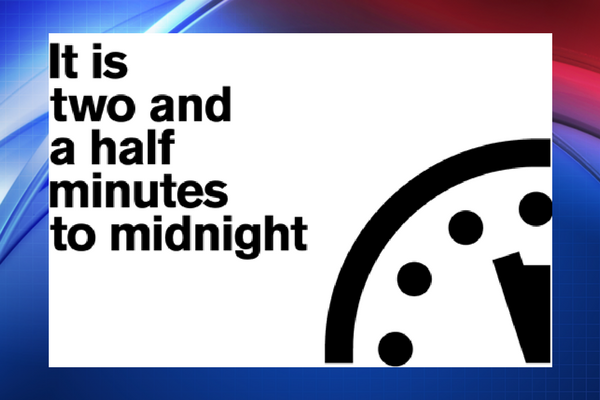
Three days ago, the Science and Security Board of the Bulletin of the Atomic Scientists moved the hands of the so-called doomsday clock from three to two and a half minutes to midnight, noting that ‘world leaders have failed to come to grips with humanity’s most pressing existential threats: nuclear weapons and climate change’.
They also cited Donald Trump’s disturbing comments about the use and proliferation of nuclear weapons as well as the emergence of strident nationalism worldwide.
The Board has issued a statement stressing how high the risk of global disaster is, but, for me, it’s not the risk but their concluding statement that is the most telling:
Wise public officials should act immediately, guiding humanity away from the brink.
If they do not, wise citizens must step forward and lead the way.
Wisdom, it seems, is currently in short supply. Yesterday, the scriptures listed in the Revised Common Lectionary included Micah 6:1-8 and 1 Corinithians 1:18-31. Both questioned their original readers and these questions continue to resound today:
From the apostle, Paul: Where is the one who is wise? Where is the scribe? Where is the debater of this age? Has not God made foolish the wisdom of the world?
From the prophet Micah: He has told you, O mortal, what is good; and what does the Lord require of you but to do justice, and to love kindness, and to walk humbly with your God?
Here are some questions of my own:
How might the oft-deemed foolish message of the gospel speak to the ‘high risk of global disaster’?
How has this gospel message been reduced to the question of whether one is pro-life or pro-choice, especially in the Christian discourse coming out of the USA?
If wisdom is not forthcoming from our public officials, what will the leadership of wise citizens look like?
Surely, it will begin with justice, kindness and humility.